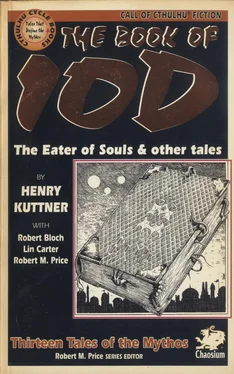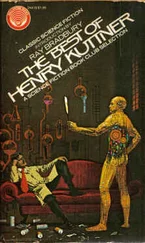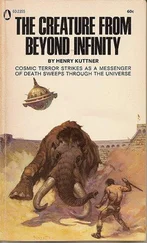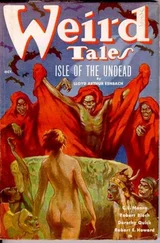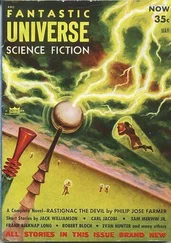Henry Kuttner - The Book of Iod
Здесь есть возможность читать онлайн «Henry Kuttner - The Book of Iod» весь текст электронной книги совершенно бесплатно (целиком полную версию без сокращений). В некоторых случаях можно слушать аудио, скачать через торрент в формате fb2 и присутствует краткое содержание. Год выпуска: 1995, ISBN: 1995, Издательство: Chaosium, Жанр: Ужасы и Мистика, на английском языке. Описание произведения, (предисловие) а так же отзывы посетителей доступны на портале библиотеки ЛибКат.
- Название:The Book of Iod
- Автор:
- Издательство:Chaosium
- Жанр:
- Год:1995
- ISBN:9781568820453
- Рейтинг книги:5 / 5. Голосов: 1
-
Избранное:Добавить в избранное
- Отзывы:
-
Ваша оценка:
- 100
- 1
- 2
- 3
- 4
- 5
The Book of Iod: краткое содержание, описание и аннотация
Предлагаем к чтению аннотацию, описание, краткое содержание или предисловие (зависит от того, что написал сам автор книги «The Book of Iod»). Если вы не нашли необходимую информацию о книге — напишите в комментариях, мы постараемся отыскать её.
The Book of Iod — читать онлайн бесплатно полную книгу (весь текст) целиком
Ниже представлен текст книги, разбитый по страницам. Система сохранения места последней прочитанной страницы, позволяет с удобством читать онлайн бесплатно книгу «The Book of Iod», без необходимости каждый раз заново искать на чём Вы остановились. Поставьте закладку, и сможете в любой момент перейти на страницу, на которой закончили чтение.
Интервал:
Закладка:
When Don Sebastian appeared, Zarnak found his host in shocking condition. Despite his relatively youthful age, the man was shrunken, wasted, his gaunt shoulders bowed as if beneath some intolerable weight, his features pasty, prematurely lined with age, the eyes shifty and red-rimmed.
Don Sebastian accepted without comment the information that Zarnak was an antiquarian, interested in ancient artifacts. During the meal they conversed on American Indian artifacts. Zarnak’s host seemed almost pathetically pleased by his visitor, as if normal human contacts were somehow denied him, except for his niece and the servants.
After breakfast, Zarnak was shown Don Sebastian’s private collection of rarities. There were some fine examples of Zuni silver, set with polished but uncut turquoises, miniature totem poles from the tribes of the Pacific Northwest, and examples of bead work that would have been the pride of any museum. Zarnak innocently mentioned the mound-builders of the southwest, and was, however reluctantly, shown the artifacts he had come uptown to examine.
For the most part, the artifacts were innocuous: As Dona Teresa had said, they consisted of clay pots of withered corn, pottery shards, beadwork belts, and bracelets. Certain motifs in the beadwork held a sinister connotation for Zarnak, who had been up much of the night consulting reference works on American Indian anthropology. The mummy in the mound had been given to the worship of dark subterranean forces, it became evident.
The black tablet was not in view. Eventually, Zarnak was forced to inquire of the obsidian pendant, saying (quite truthfully) that he had heard of it as unique and curious. With obvious reluctance, his host displayed the peculiar object.
It was irregular in shape and the volcanic glass from which it had been carved was oddly heavy in the hand, unnaturally so. Holding the black pendant to the light, Zarnak discovered it hewn with an odd design, resembling a hooded man-shaped figure surrounded by fawning, groveling shadowy shapes, curiously repellent. Strange characters in a tongue unknown to human science ringed the emblem about. The object was unique to Zarnak's experience, but he recalled to mind another passage from the Book of Iod that might prove of relevance: “ Power and peril lurk in those images They brought down from the stars when the Earth was newly formed… ”
Dr. Zarnak engaged his host in conversation as he strolled about examining the superb small collection. While the gaunt, wasted man seemed distraught, even feeble, his speech was coherent and his knowledge of scientific matters extraordinary for an amateur. It was apparent that his intellectual faculties remained unimpaired. And Zamak’s keen knowledge of medicine led him to the conclusion that whatever had so deeply troubled Don Sebastian was of a mental and not of a physical nature. There were no obvious symptoms of disease.
Zarnak asked for, and received, permission from his host to take a rubbing of the carvings on the black tablet. Later, having returned to his residence at Number Thirteen China Alley, he studied the cryptic characters with bafflement, consulting text after text from his extensive library. The writing was in neither the Tsath-yo language of elder Hyperborea nor the Naacal of primal Mu, nor was it R’lyehian. The faint possibility that it might be in the queer characters of the Aklo tongue led Doctor Zarnak to peruse certain texts of fabulous rarity.
This study led him eventually to a copy of Otto Dostmann’s book, Remnants of Lost Empires , published in Berlin in 1809 by the Drachenhaus Press. Therein he found the notorious “Aklo Tables” and compared the curious hooked and looped characters to those in the rubbing he had taken from the tablet from the mound: They were the same.
In translation they read: Keep me from the Light, for Night is my friend and Day my foe, lest Zulchequon consume thee utterly . He then studied those parts of the Livre d' lvon wherein the Lord of Darkness is described and came to a sudden realization of the extremity of peril in which Don Sebastian de Rivera had lived daily since the excavation of the burial mound of the Mutsune shaman.
Light—even artificial light—held the Dark One at bay and helpless to visit His wrath on mortals. Only during the hours of darkness could He strike and slay, to avenge Himself upon the disturber of ancient relics never meant to be exposed to the luminance of day. Whatever perversity of greed had caused Don Sebastian to cling to the black obsidian tablet had placed him in perpetual peril all these years; and this was the season of the year in which the overuse of electricity, together with sudden electrical storms, frequently caused power failures—
Disturbed by these discoveries, which seemed ominous, Zarnak telephoned the town house of Don Sebastian and his niece. Some sort of trouble on the line had rendered their residence temporarily beyond the reach of telephonic communication. Zarnak went to the window and drew aside the heavy drapes: Night had fallen, and the sky was a sullen and sulphurous hue, wherein lightning flickered. The radio warned of sudden and unexpected electrical storms, which might paralyze portions of the city with the brief loss of electrical power to certain areas.
Zarnak doffed his robe, donned his coat and took up a slender black case that was seldom far from his side by night or by day. He then rang his tall Rajput servant and ordered a taxi.
4. Thing of Darkness
The cab seemed to take forever to forge its way through streams of heavy traffic uptown, and all the while the sulphurous sky, turgid with thunderclouds, lowered threateningly, and tongues of lightning flickered in their dark masses. At any moment one such bolt might strike a power line, causing a brief but fatal—fatal to Don Sebastian, that is—cessation of electricity.
At length the cab pulled up before the imposing facade of the de Rivera residence on that quiet, tree-lined street of Park Avenue, and Zarnak emerged, hastily tossing a bill to the driver. His repeated ringing of the bell eventually elicited a response, in the lissome form of Dona Teresa. Her lustrous eyes widened at the sight of Doctor Zarnak; she opened the door swiftly.
“Is all well?” he demanded harshly. She nodded mutely, then explained that radio warnings of temporary power blackouts had driven her uncle into a frenzy of fear, and that he had the servants lighting scores of candles in his rooms against the possibility.
“Take me to your uncle at once, I implore you! I must take the black tablet with me, to neutralize it as best I can—”
They ascended the stairs and entered the rooms where Don Sebastian lived. Every tabletop held silver candelabra filled with lit tapers, and all electric lights were blazingly alit. The room fairly teemed with luminance, to such an extent that even the shadows in far corners were dispelled. Don Sebastian himself was in a frightful condition, hands shaking, spittle dribbling from the corners of his mouth. He seemed scarcely aware of Zamak’s presence, such was his agitation.
Carmelita and the other servants departed to seek additional candles in some storage space in the cellar, when Zarnak implored Don Sebastian to let him borrow the obsidian pectoral overnight; so distraught was the older man that he seemed scarcely to hear the words of his guest, and paid them little heed.
And then it was that it happened.
Suddenly, the electric lights waned and died. Don Sebastian screeched like a doomed soul and cowered in a corner. Dona Teresa ran to comfort him, while Zarnak sprang to the windows and tore asunder the heavy curtains to peer out. All up and down the street the lights in windows were dying, and the street lights faded into gloom. The threatened power blackout had occurred.
Читать дальшеИнтервал:
Закладка:
Похожие книги на «The Book of Iod»
Представляем Вашему вниманию похожие книги на «The Book of Iod» списком для выбора. Мы отобрали схожую по названию и смыслу литературу в надежде предоставить читателям больше вариантов отыскать новые, интересные, ещё непрочитанные произведения.
Обсуждение, отзывы о книге «The Book of Iod» и просто собственные мнения читателей. Оставьте ваши комментарии, напишите, что Вы думаете о произведении, его смысле или главных героях. Укажите что конкретно понравилось, а что нет, и почему Вы так считаете.
